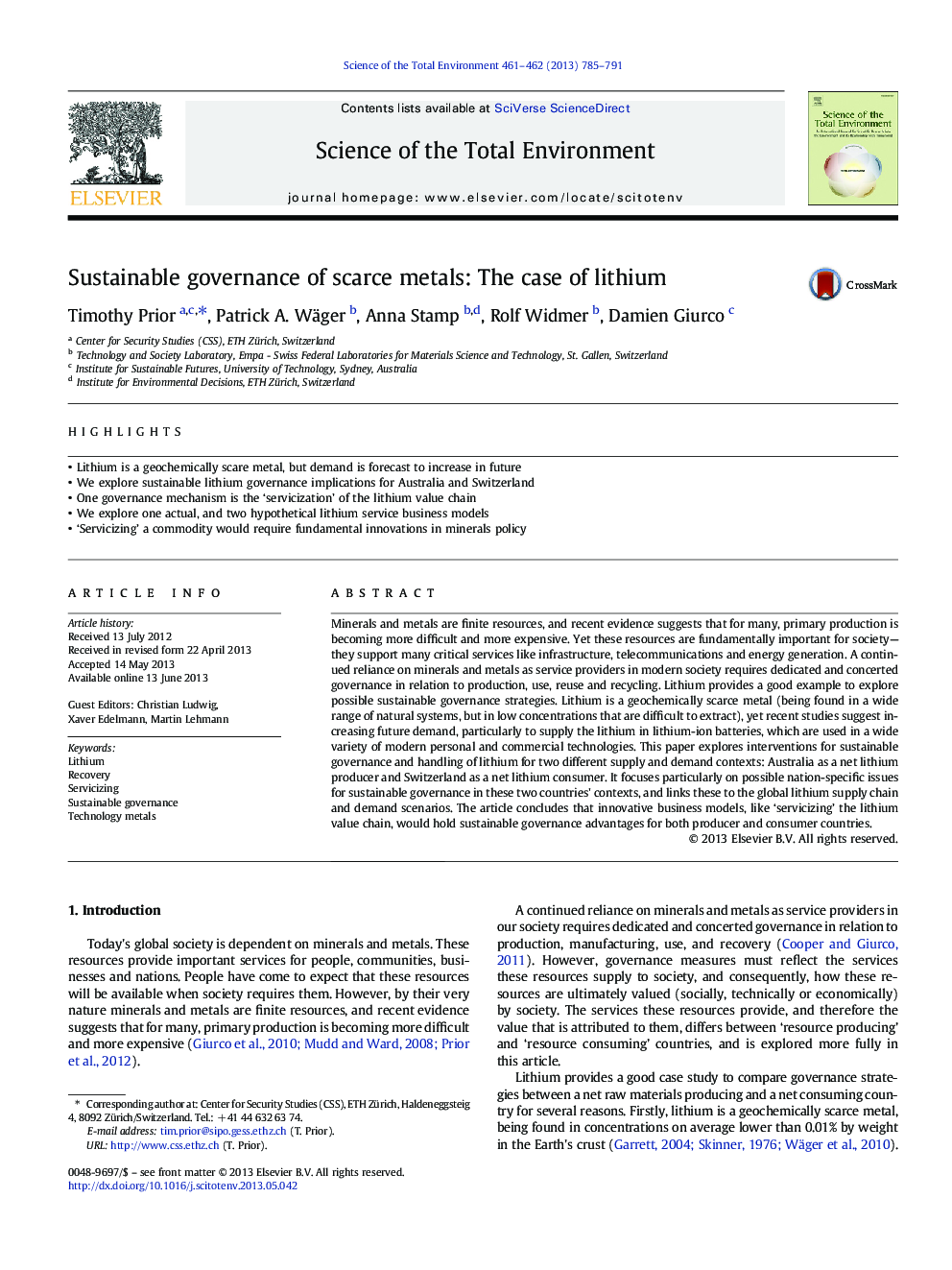| کد مقاله | کد نشریه | سال انتشار | مقاله انگلیسی | نسخه تمام متن |
|---|---|---|---|---|
| 6332058 | 1619799 | 2013 | 7 صفحه PDF | دانلود رایگان |
- Lithium is a geochemically scare metal, but demand is forecast to increase in future
- We explore sustainable lithium governance implications for Australia and Switzerland
- One governance mechanism is the 'servicization' of the lithium value chain
- We explore one actual, and two hypothetical lithium service business models
- 'Servicizing' a commodity would require fundamental innovations in minerals policy
Minerals and metals are finite resources, and recent evidence suggests that for many, primary production is becoming more difficult and more expensive. Yet these resources are fundamentally important for society-they support many critical services like infrastructure, telecommunications and energy generation. A continued reliance on minerals and metals as service providers in modern society requires dedicated and concerted governance in relation to production, use, reuse and recycling. Lithium provides a good example to explore possible sustainable governance strategies. Lithium is a geochemically scarce metal (being found in a wide range of natural systems, but in low concentrations that are difficult to extract), yet recent studies suggest increasing future demand, particularly to supply the lithium in lithium-ion batteries, which are used in a wide variety of modern personal and commercial technologies. This paper explores interventions for sustainable governance and handling of lithium for two different supply and demand contexts: Australia as a net lithium producer and Switzerland as a net lithium consumer. It focuses particularly on possible nation-specific issues for sustainable governance in these two countries' contexts, and links these to the global lithium supply chain and demand scenarios. The article concludes that innovative business models, like 'servicizing' the lithium value chain, would hold sustainable governance advantages for both producer and consumer countries.
Journal: Science of The Total Environment - Volumes 461â462, 1 September 2013, Pages 785-791
